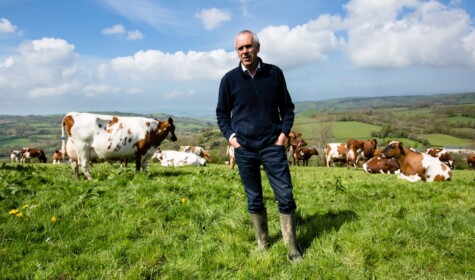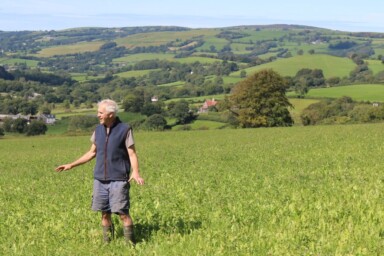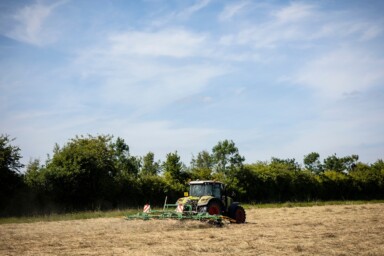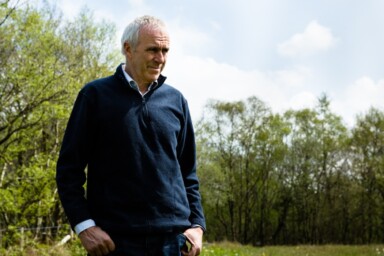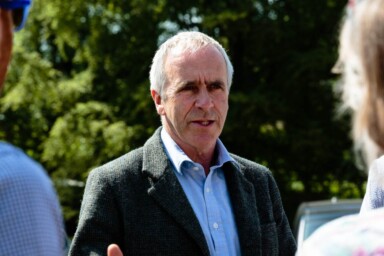Current thinking around how we use land to tackle climate change represents a massive missed opportunity – the significant potential of sustainable food and farming in addressing climate change, restoring nature and improving public health.
Before the general election, I met Sir Keir Starmer a couple of times – not one-on-one meetings, just brief chats at receptions. After the second encounter, I sent him an email suggesting that if he became Prime Minister, he might consider calling a meeting between the treasury and the departments of health, education, climate and Defra, exploring ways in which an investment in truly sustainable agriculture might bring savings to those other government departments.
Perhaps unsurprisingly, he didn’t reply. Of course, I wasn’t offended, after all he is a very busy man, and for most of his advisors, the proposition of investigating ways in which an investment in sustainable agriculture could create savings for other government departments was simply not on their radar screens.
However, not having been able to get through the front door, my back-up plan was to work on individual government departments, encouraging them to form strategic partnerships where agriculture could help solve a problem.
And, as if by magic, a perfect case study presented itself at New York Climate Week, where I met Ed Miliband, the Secretary of State for Energy Security and Net Zero, at a dinner hosted by the Sustainable Markets Initiative (SMI). Serendipitously, after giving his speech to around 50 CEOs, he came and sat at my table!
We had previously met at COP28 in Dubai. I had the distinct impression that he didn’t have much interest in agriculture, and this was quite rapidly confirmed during his speech! After rightly highlighting the urgency of accelerating the energy and climate transitions, he went on to make two points, subsequently repeated in radio interviews. Firstly, he spoke about how the Government were committed to spending billions on carbon capture and storage and, secondly, about their plan to use one percent of UK agricultural land for solar panels.
“It is so sad to witness this massive, missed opportunity, which both Defra and climate ministers are failing to grasp. The advantages of investing in sustainable agriculture as part of a wider strategy for addressing climate change, nature restoration and improving public health seem glaringly obvious to me, but not to them!”
Neither of these policies make any sense to me. On carbon capture and storage, surely this is a classic example of blind faith in an unproven technology. I suspect it won’t work, but even if it does, the cost will be horrendous and, from my perspective at least, there is a far better way of achieving the same result, namely by drawing down the equivalent amount of CO2 from the atmosphere and putting it back in the soil. This not only addresses climate change, but it also helps enable the transition to climate and nature-friendly agriculture because unless we re-carbonise our soils, this shift will be impossible on many farms.
He then went on to assert that the consequences of taking one percent of farmland for solar panels would not be significant for food security.
By this time I was thinking ‘Okay, he definitely doesn’t get agriculture!’ It seemed unwise, however, at this early stage in the life of a new Government, to say as much to this highly intelligent man, so instead, I told him the story of Richard Gantlett’s 1500-acre farm in Wiltshire, where Richard estimates he is sequestering 10 times more carbon than it emits. Would he consider a visit, I asked? He neither accepted nor declined, but I suspect he had probably forgotten the conversation within a few minutes of leaving the room.
It is so sad to witness this massive missed opportunity, which both Defra and climate ministers are failing to grasp. The advantages of investing in sustainable agriculture as part of a wider strategy for addressing climate change, nature restoration and improving public health seem glaringly obvious to me, but not to them!
The Climate Change Committee don’t get it either, and this matters, because if you add up all the land that is proposed to be or already has been taken out of food production, including for woodland creation, re-forestation, re-wilding, crops for biofuels and now solar power, there simply may not be enough left to adopt a sustainable farming strategy, where food is produced in harmony with nature, as advocated in our ‘Feeding Britain From the Ground Up’ report.
Can anything be done to shift the mindset of a Government who, despite their good intentions, seem oblivious to perhaps the most important environmental issue of our time, namely the connection between intensive farming, which now occupies so much of the planet’s surface, and climate change, biodiversity destruction and growing public ill health.
To end on a note of optimism, with the tide of public opinion now turning, we may yet be able to persuade the Government to change tack on all of this. Let’s hope!
